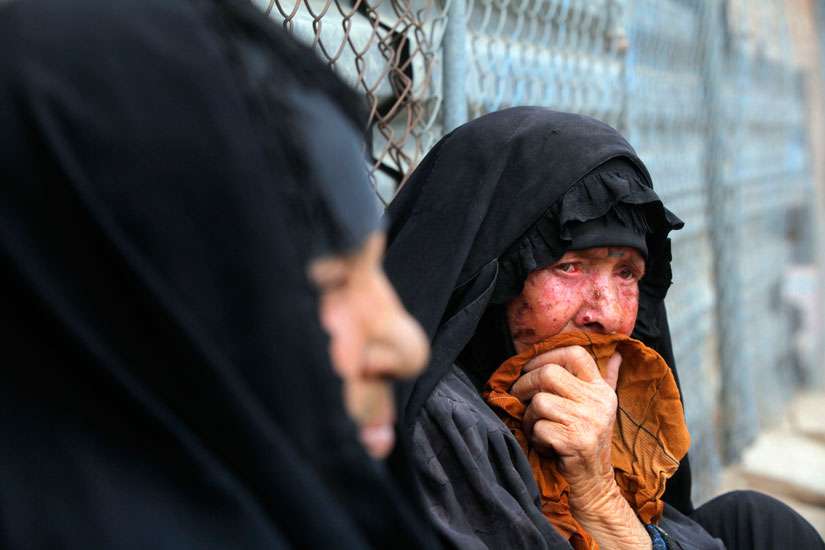“Military intervention will not bring an end to the conflict without a broader, internationally sanctioned strategy for achieving sustainable peace in Iraq and Syria,” said the April 6 letter signed by Canadian Conference of Catholic Bishops president Archbishop Paul-André Durocher and more than 20 other church leaders from Catholic, Orthodox, Anglican and other faith traditions.
The letter says the churches’ regional partners have expressed concern acts of violence will either create new or renew old hostilities, harm the social fabric and make achieving peace more difficult.
“We are convinced that military efforts to end or limit the present atrocities must be accompanied by other steps,” the letter said.
While commending Canada for taking seriously the crimes against humanity perpetuated by the Islamic State, and for the substantial humanitarian assistance to displaced persons in the region, the letter said “the needs continue to be enormous.”
“Canada can and should do more,” the letter said.
The church leaders urged the Canadian government to “strengthen its diplomatic efforts, increase humanitarian assistance and support for refugees, support civil society organizations, control arms and focus on the protection of the rule of law and respect for human rights, especially through inclusive government structures in Iraq and Syria.”
Durocher said the CCCB "felt it was important to sign on, because the situation is incredibly traumatic. We felt it was important to raise the voices of our brothers and sisters who are living in the Middle East in front of the government and in front of the general Canadian population.”
The letter does not denounce military intervention altogether, even as it raises doubts about its long-term efficacy. Durocher said that bishops of the Middle East and Catholic leaders there are divided on the issue.
“Not everyone has the same read on what is needed,” he said. “But obviously everyone is agreed that military intervention alone is not enough.”
The letter stressed the need for diplomacy to stop not only the flow of resources and arms to the Islamic State, but also to build “a comprehensive international political framework supported by countries in the region and by the United Nations and international law.”
It urged Canada to do more in helping refugees and internally displaced persons and asked for clarity on the government’s position on receiving refugees from the region. It sought “reassurance” a commitment to resettle Syrian refugees is “not at the expense” of refugees from other countries.
The letter called on Canada to do more in building civil society organizations in the region. It also asked Canada to do more in terms of arms control.
“We lament but are aware that Canada has been adding to the stores of lethal and non-lethal military equipment, therefore Canada must ensure that these supplies are not diverted to other parties in the conflict,” it said.
Finally, the letter called on Canada to help educate and equip the police, judiciary and other government arms on how to respect human rights, and to “strengthen commitment to the rule of law.”
“Freedom of conscience and religion and respect for human rights more generally are essential to the emergence in Iraq of an open, peaceful and democratic society,” the letter said. It also stated the church leaders’ commitment to dialogue with Muslims, “recognizing that violent distortions of Islam are causing misunderstanding and suffering in the world and in Canada for peace-loving Muslims, as well as in non-Muslim communities.”
“We condemn any attempts to demonize Islam and peaceful, law-abiding Muslims,” the letter said.
Durocher said the points in the letter are each clear, important and “worthy of consideration by our present government.”


